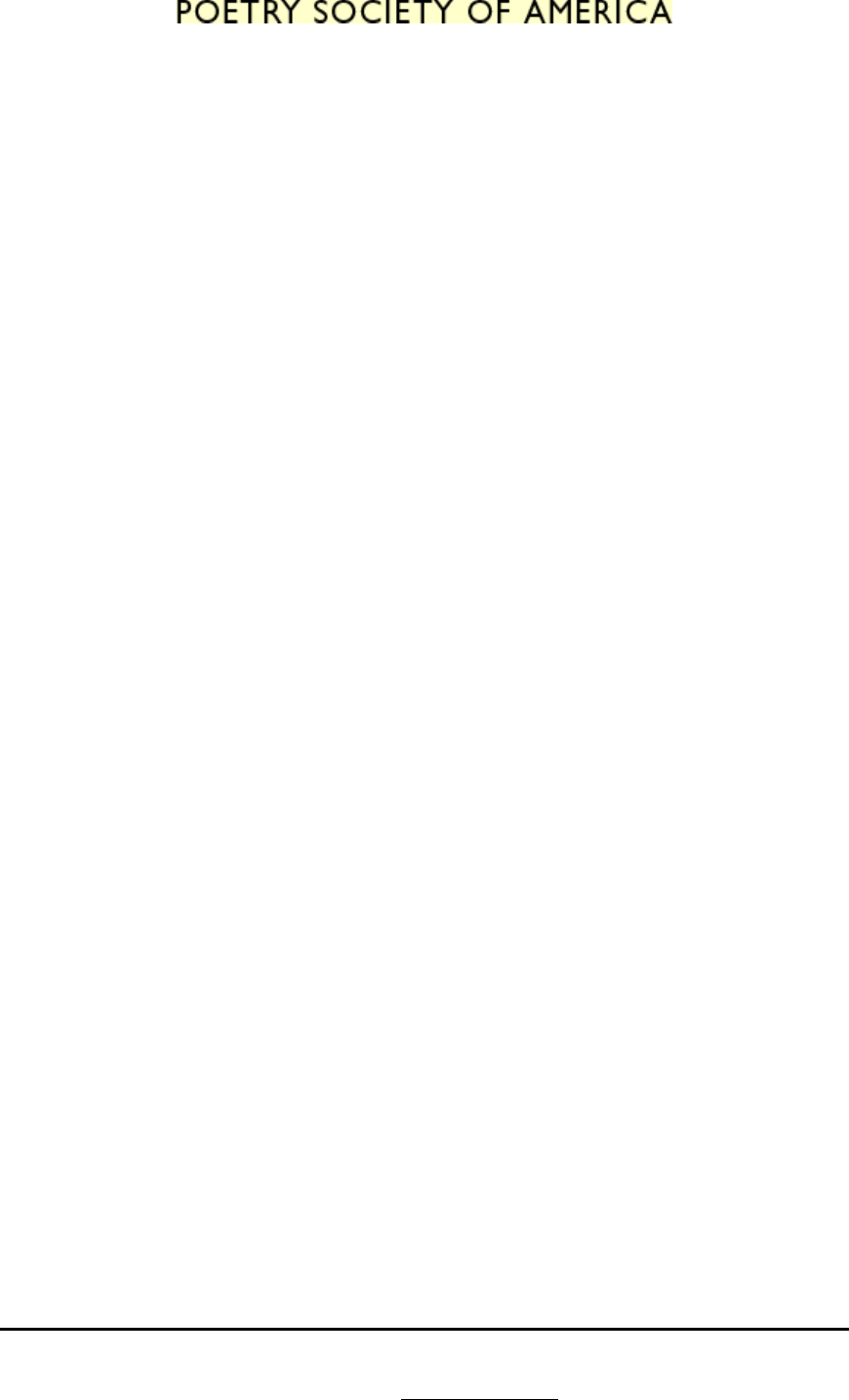
15 Gramercy Park
New York, NY 10003
(212) 254-9628 / www.poetrysociety.org
The Owl and the Pussy-Cat
The Owl and the Pussy-Cat went to sea
In a beautiful pea-green boat,
They took some honey, and plenty of money,
Wrapped up in a five pound-note.
The Owl looked up to the stars above,
And sang to a small guitar,
'O lovely Pussy! O Pussy, my love,
What a beautiful Pussy you are,
You are,
You are!
What a beautiful Pussy you are.'
Pussy said to the Owl, 'You elegant fowl,
How charmingly sweet you sing.
O let us be married, too long have we tarried,
But what shall we do for a ring?'
They sailed away for a year and a day,
To the land where the Bong-tree grows,
And there in the wood a Piggy-wig stood,
With a ring in the end of his nose,
His nose,
His nose!
With a ring in the end of his nose.
'Dear Pig, are you willing, to sell for one shilling
Your ring?' Said the Piggy, 'I will.'
So they took it away, and were married next day,
By the Turkey who lives on the hill.
They dined on mince, and slices of quince,
Which they ate with a runcible spoon;
And hand in hand, on the edge of the sand,
They danced by the light of the moon,
The moon,
The moon,
They danced by the light of the moon.
Edward Lear (1812-1888)
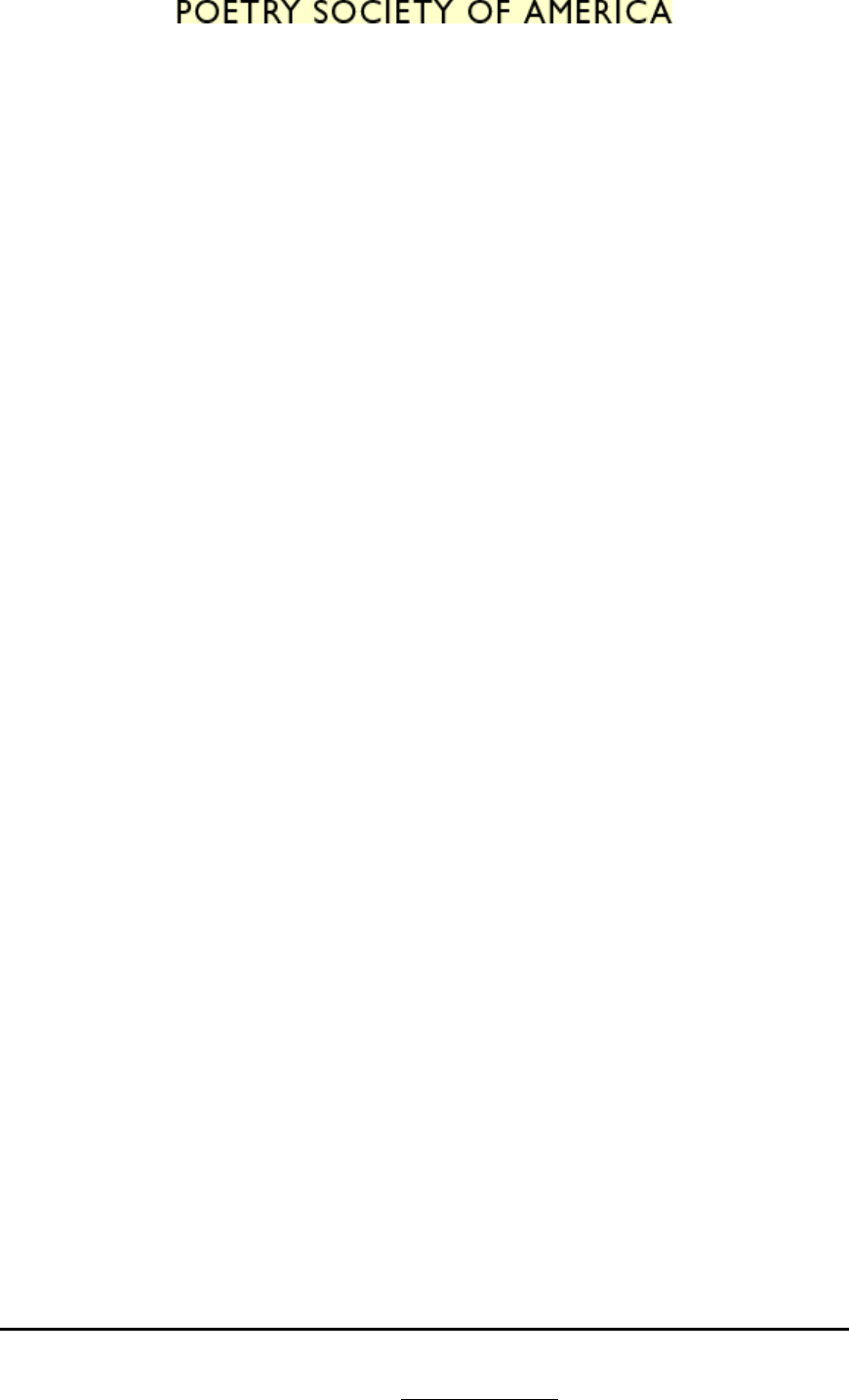
15 Gramercy Park
New York, NY 10003
(212) 254-9628 / www.poetrysociety.org
Sympathy
I know what the caged bird feels, alas!
When the sun is bright on the upland slopes;
When the wind stirs soft through the springing grass,
And the river flows like a stream of glass;
When the first bird sings and the first bud opens,
And the faint perfume from its chalice steals—
I know what the caged bird feels!
I know why the caged bird beats its wing
Till its blood is red on the cruel bars;
For he must fly back to his perch and cling
When he fain would be on the bough a-swing;
And a pain still throbs in the old, old scars
And they pulse again with a keener sting—
I know why he beats his wing!
I know why the caged bird sings, ah me,
When his wing is bruised and his bosom sore,—
When he beats his bars and he would be free;
It is not a carol of joy or glee,
But a prayer that he sends from his heart's deep core,
But a plea, that upward to Heaven he flings—
I know why the caged bird sings.
Paul Laurence Dunbar (1872-1906)
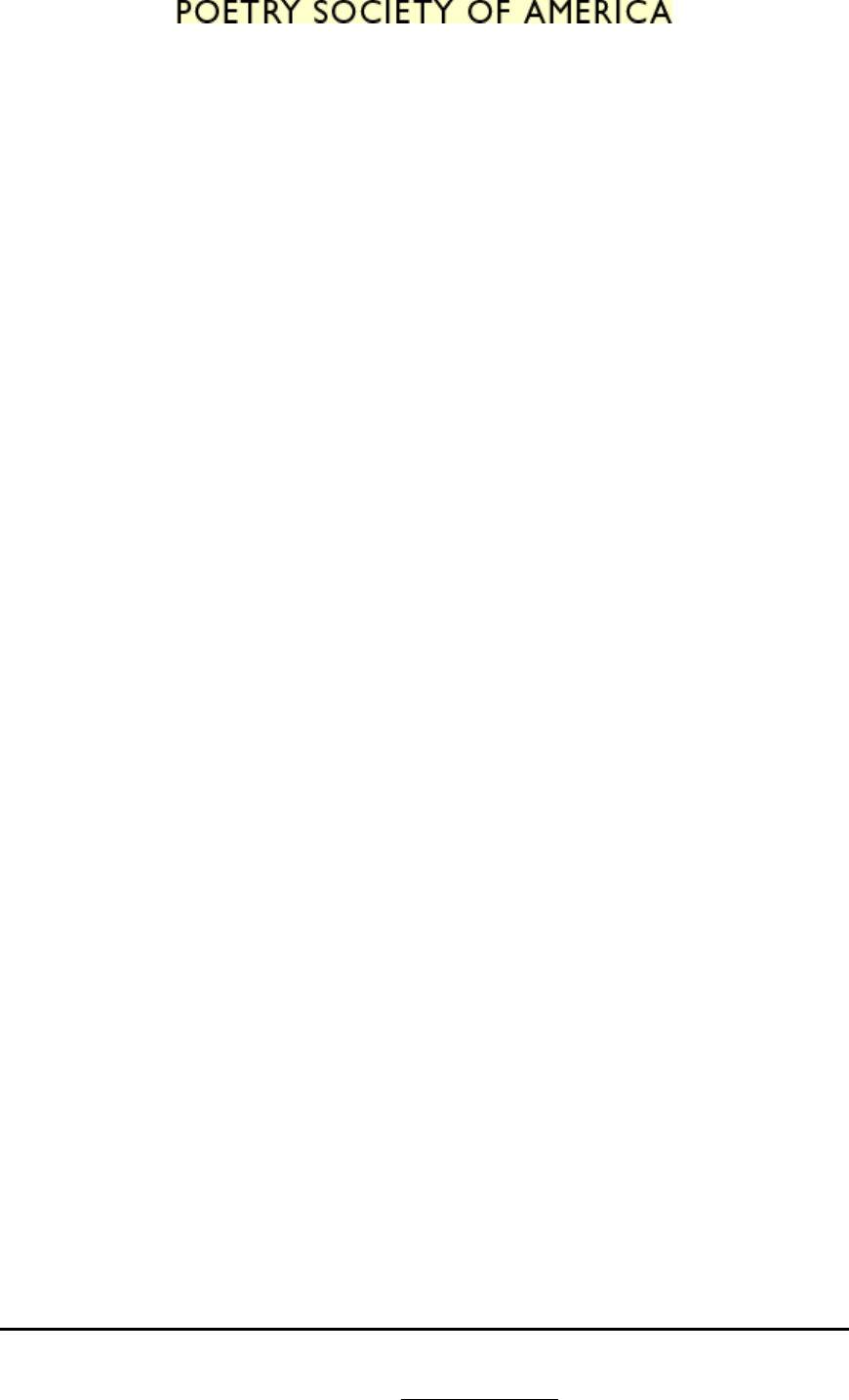
15 Gramercy Park
New York, NY 10003
(212) 254-9628 / www.poetrysociety.org
My Heart Leaps Up
My heart leaps up when I behold
A rainbow in the sky;
So was it when my life began;
So is it now I am a man;
So be it when I shall grow old,
Or let me die!
The Child is father of the Man;
And I could wish my days to be
Bound each to each by natural piety.
William Wordsworth (1770-1850)
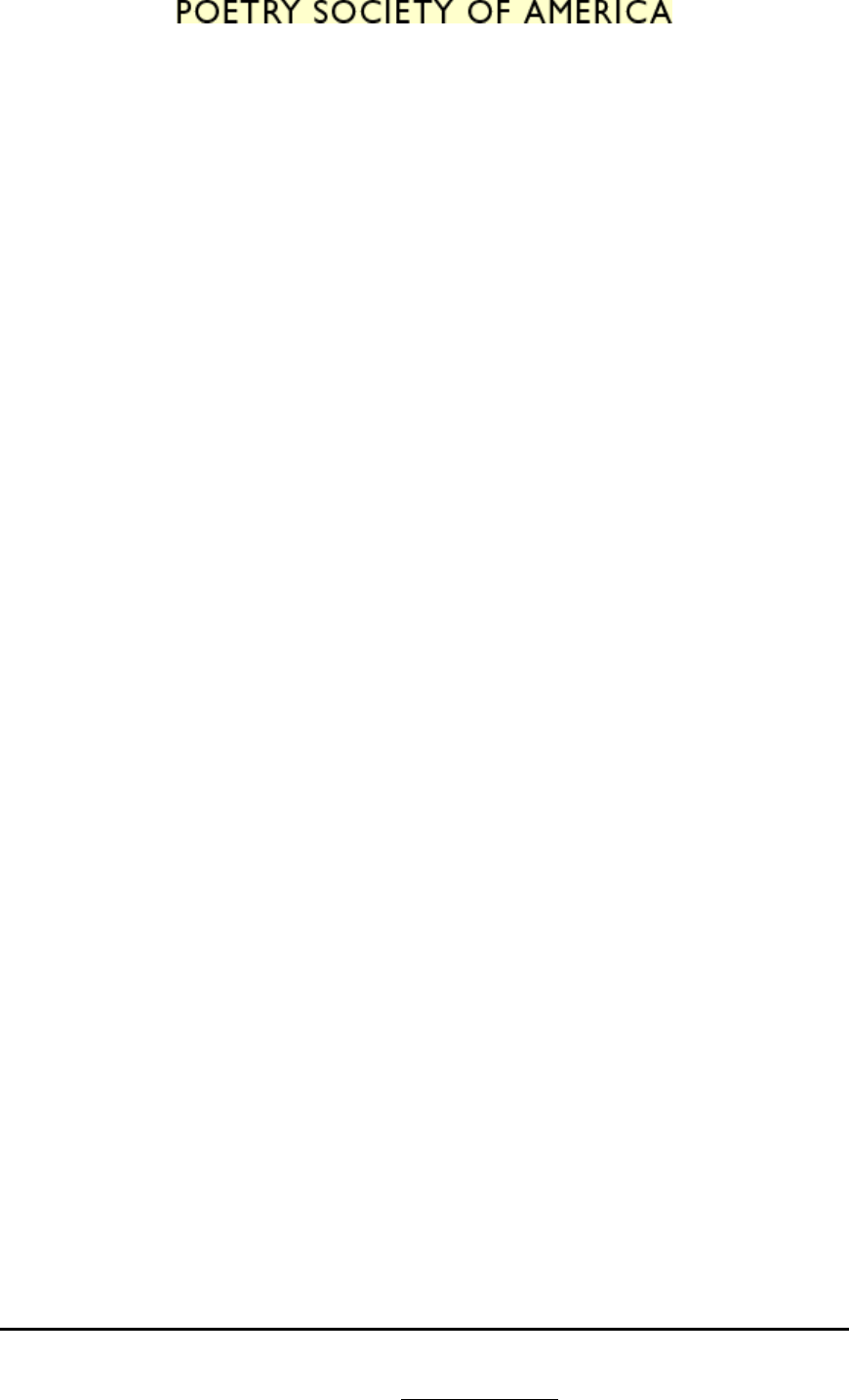
15 Gramercy Park
New York, NY 10003
(212) 254-9628 / www.poetrysociety.org
When You Are Old
When you are old and gray and full of sleep,
And nodding by the fire, take down this book,
And slowly read, and dream of the soft look
Your eyes had once, and of their shadows deep;
How many loved your moments of glad grace,
And loved your beauty with love false or true,
But one man loved the pilgrim soul in you,
And loved the sorrows of your changing face;
And bending down beside the glowing bars,
Murmur, a little sadly, how Love fled
And paced upon the mountains overhead
And hid his face among a crowd of stars.
William Butler Yeats (1865-1939)
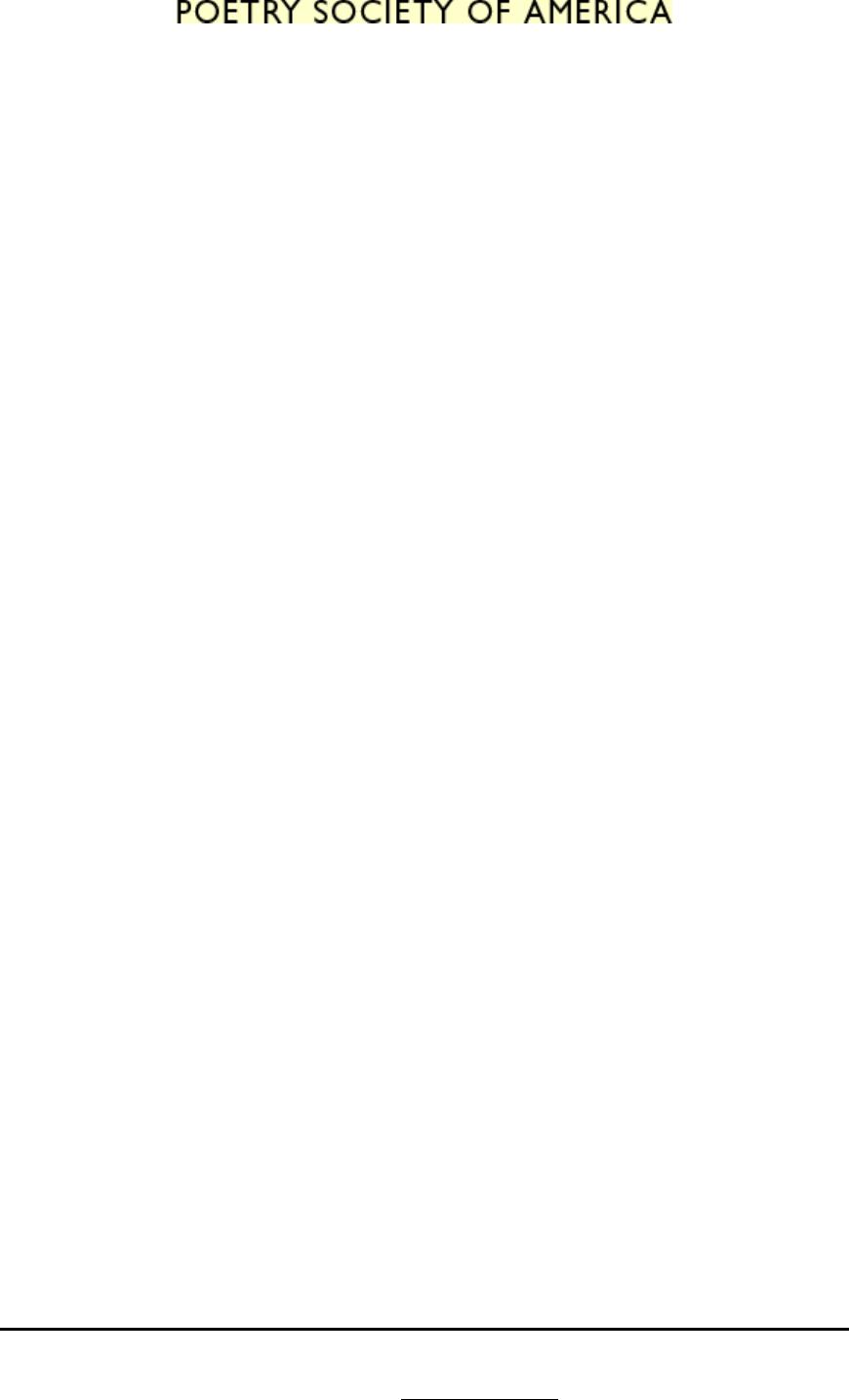
15 Gramercy Park
New York, NY 10003
(212) 254-9628 / www.poetrysociety.org
I wandered lonely as a cloud
I wandered lonely as a cloud
That floats on high o'er vales and hills,
When all at once I saw a crowd,
A host, of golden daffodils;
Beside the lake, beneath the trees,
Fluttering and dancing in the breeze.
Continuous as the stars that shine
And twinkle on the milky way,
They stretched in never-ending line
Along the margin of a bay:
Ten thousand saw I at a glance,
Tossing their heads in sprightly dance.
The waves beside them danced; but they
Out-did the sparkling waves in glee:
A poet could not but be gay,
In such a jocund company:
I gazed—and gazed—but little thought
What wealth the show to me had brought:
For oft, when on my couch I lie
In vacant or in pensive mood,
They flash upon that inward eye
Which is the bliss of solitude;
And then my heart with pleasure fills,
And dances with the daffodils.
William Wordsworth (1770-1850)
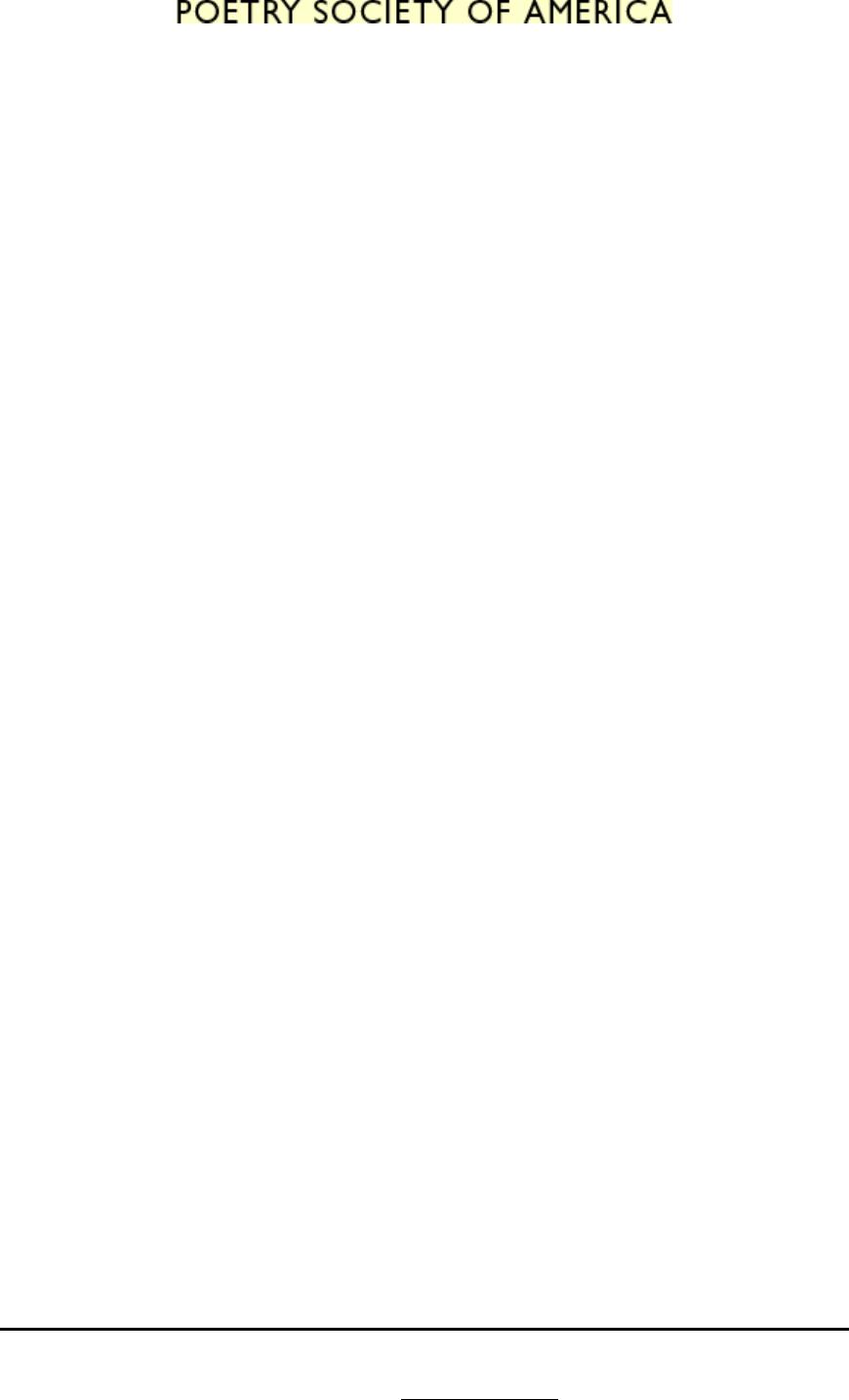
15 Gramercy Park
New York, NY 10003
(212) 254-9628 / www.poetrysociety.org
How Do I Love Thee? (Sonnet 43)
How do I love thee? Let me count the ways.
I love thee to the depth and breadth and height
My soul can reach, when feeling out of sight
For the ends of being and ideal grace.
I love thee to the level of every day's
Most quiet need, by sun and candle-light.
I love thee freely, as men strive for right.
I love thee purely, as they turn from praise.
I love thee with the passion put to use
In my old griefs, and with my childhood's faith.
I love thee with a love I seemed to lose
With my lost saints. I love thee with the breath,
Smiles, tears, of all my life; and, if God choose,
I shall but love thee better after death.
Elizabeth Barrett Browning (1806-1861)
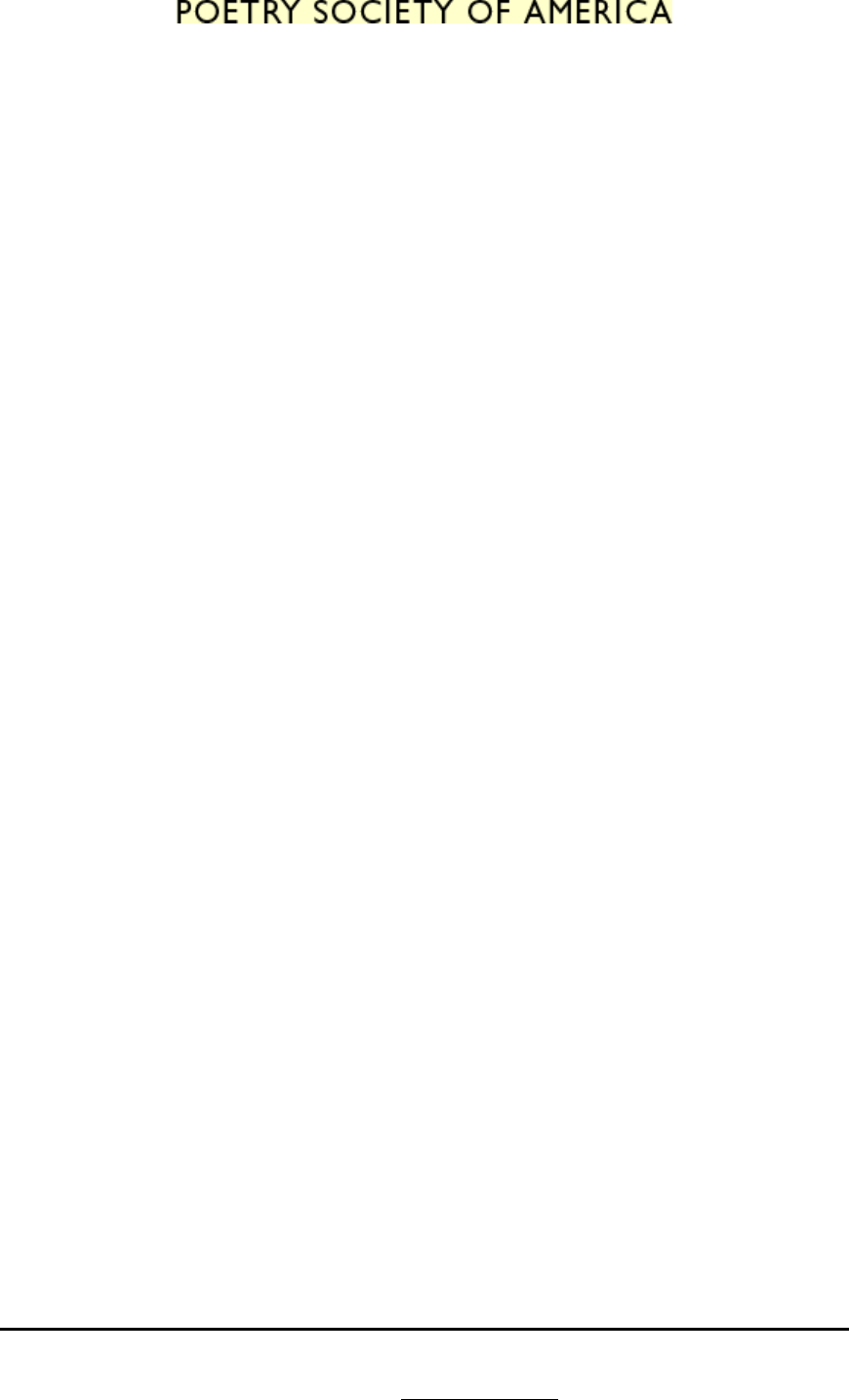
15 Gramercy Park
New York, NY 10003
(212) 254-9628 / www.poetrysociety.org
My Shadow
I have a little shadow that goes in and out with me,
And what can be the use of him is more than I can see.
He is very, very like me from the heels up to the head;
And I see him jump before me, when I jump into my bed.
The funniest thing about him is the way he likes to grow—
Not at all like proper children, which is always very slow;
For he sometimes shoots up taller like an india-rubber ball,
And he sometimes goes so little that there's none of him at all.
He hasn't got a notion of how children ought to play,
And can only make a fool of me in every sort of way.
He stays so close behind me, he's a coward you can see;
I'd think shame to stick to nursie as that shadow sticks to me!
One morning, very early, before the sun was up,
I rose and found the shining dew on every buttercup;
But my lazy little shadow, like an arrant sleepy-head,
Had stayed at home behind me and was fast asleep in bed.
Robert Louis Stevenson (1850-1894)
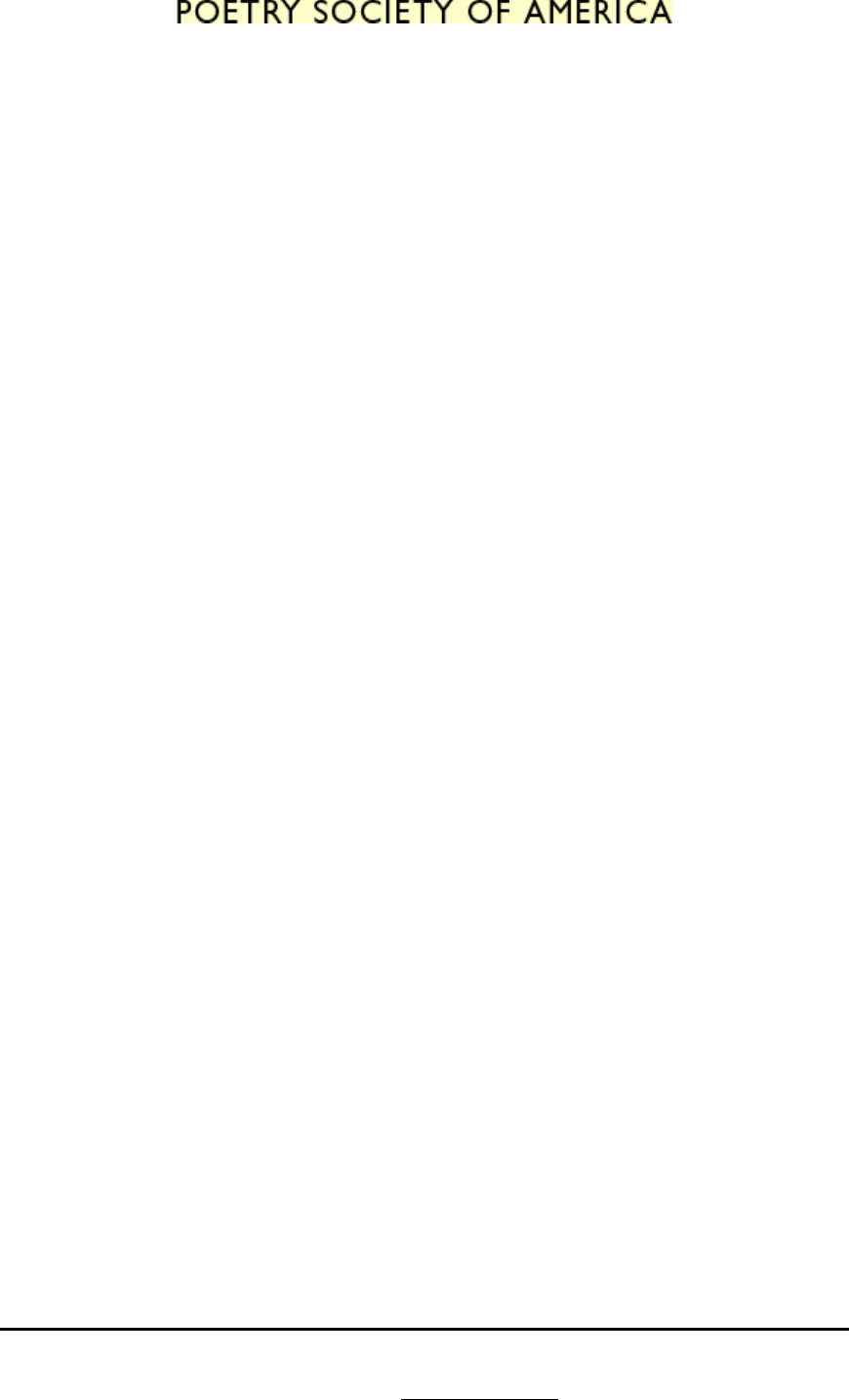
15 Gramercy Park
New York, NY 10003
(212) 254-9628 / www.poetrysociety.org
Song
Go and catch a falling star,
Get with child a mandrake root,
Tell me where all past years are,
Or who cleft the devil's foot,
Teach me to hear mermaids singing,
Or to keep off envy's stinging,
And find
What wind
Serves to advance an honest mind.
If thou be'st born to strange sights,
Things invisible to see,
Ride ten thousand days and nights,
Till age snow white hairs on thee,
Thou, when thou return'st, wilt tell me,
All strange wonders that befell thee,
And swear,
No where
Lives a woman true and fair.
If thou find'st one, let me know,
Such a pilgrimage were sweet;
Yet do not, I would not go,
Though at next door we might meet,
Though she were true, when you met her,
And last, till you write your letter,
Yet she
Will be
False, ere I come, to two, or three.
John Donne (1572-1617)
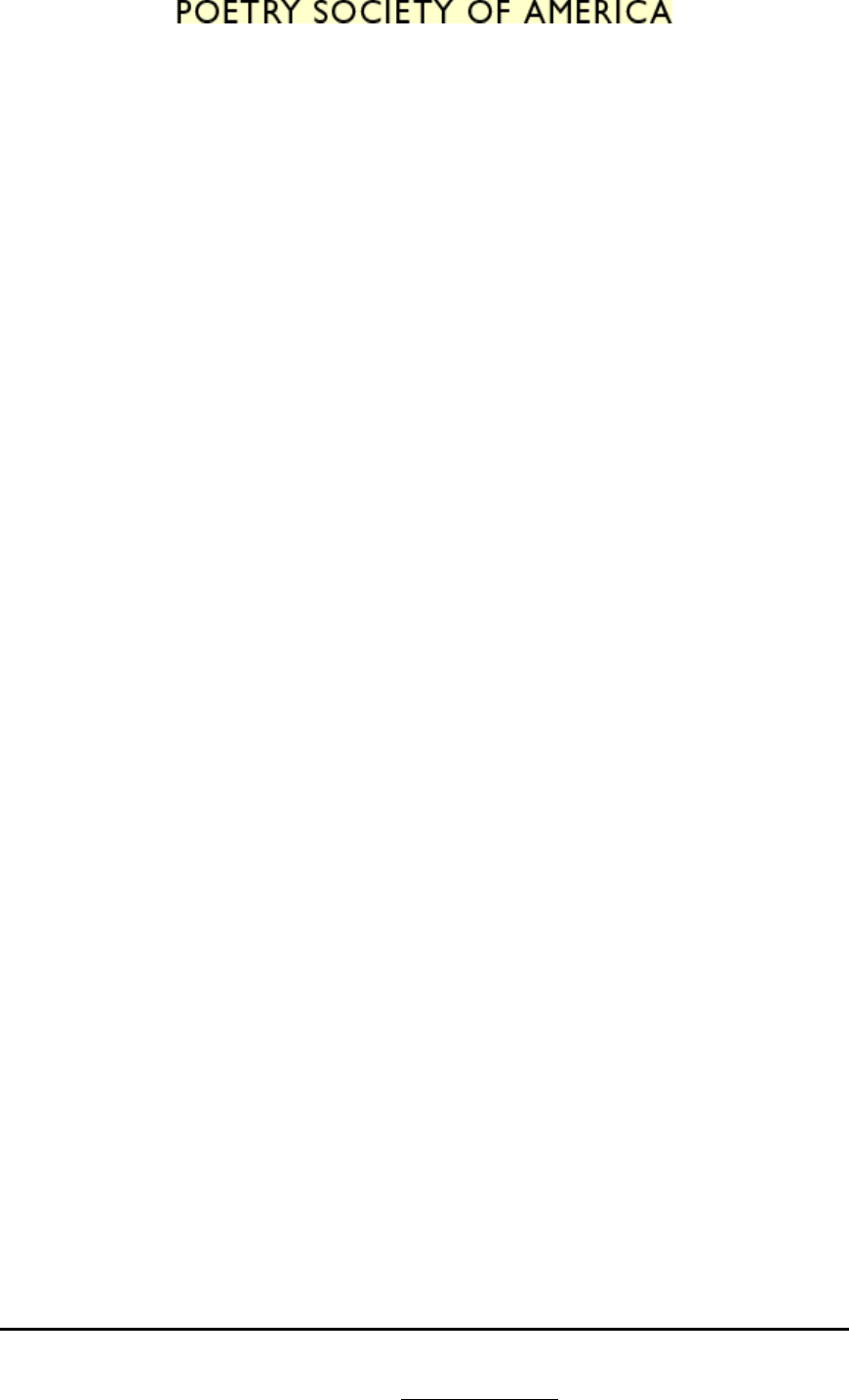
15 Gramercy Park
New York, NY 10003
(212) 254-9628 / www.poetrysociety.org
There Was a Child Went Forth
There was a child went forth every day;
And the first object he look'd upon, that object he became;
And that object became part of him for the day, or a certain part of the day,
Or for many years, or stretching cycles of years.
The early lilacs became part of this child,
And grass, and white and red morning-glories, and white and red clover, and the
song of the
phoebe-bird,
And the Third-month lambs, and the sow's pink-faint litter, and the mare's
foal, and the cow's calf,
And the noisy brood of the barn-yard, or by the mire of the pond-side,
And the fish suspending themselves so curiously below there—and the
beautiful curious liquid,
And the water-plants with their graceful flat heads—all became part of
him.
The field-sprouts of Fourth-month and Fifth-month became part of him;
Winter-grain sprouts, and those of the light-yellow corn, and the esculent
roots of the garden,
And the apple-trees cover'd with blossoms, and the fruit afterward,
and wood-berries, and the commonest weeds by the road;
And the old drunkard staggering home from the out-house of the tavern,
whence he had lately
risen,
And the school-mistress that pass'd on her way to the school,
And the friendly boys that pass'd—and the quarrelsome boys,
And the tidy and fresh-cheek'd girls—and the barefoot negro boy and girl,
And all the changes of city and country, wherever he went.
His own parents, he that had father'd him, and she that had conceiv'd him
in her womb, and birth'd
him,
They gave this child more of themselves than that;
They gave him afterward every day—they became part of him.
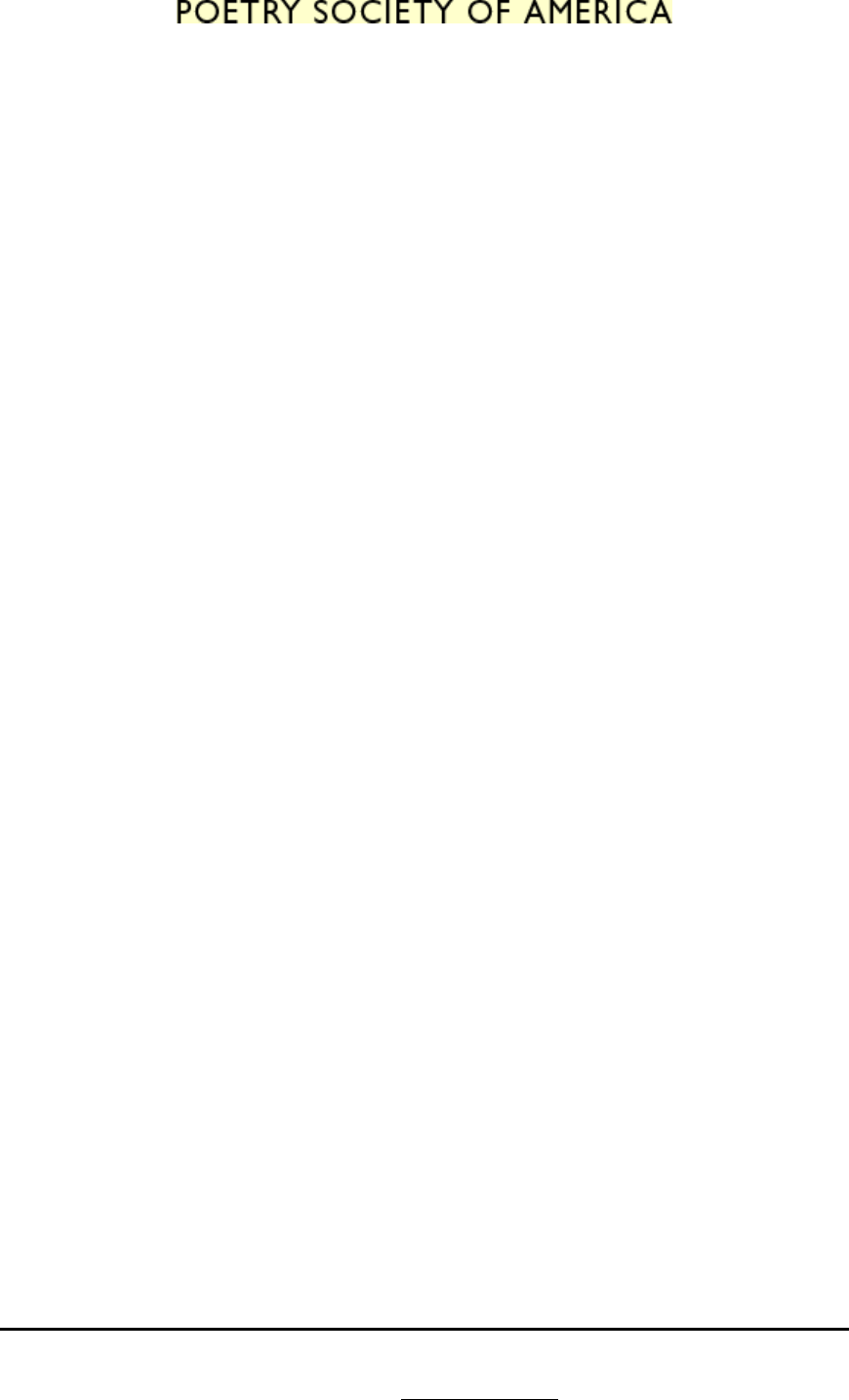
15 Gramercy Park
New York, NY 10003
(212) 254-9628 / www.poetrysociety.org
The mother at home, quietly placing the dishes on the supper-table;
The mother with mild words—clean her cap and gown, a wholesome odor
falling off her person and clothes as she walks by;
The father, strong, self-sufficient, manly, mean, anger'd, unjust;
The blow, the quick loud word, the tight bargain, the crafty lure,
The family usages, the language, the company, the furniture—the yearning
and swelling heart,
Affection that will not be gainsay'd—the sense of what is real—the thought
if, after all, it should
prove unreal,
The doubts of day-time and the doubts of night-time—the curious whether
and how,
Whether that which appears so is so, or is it all flashes and specks?
Men and women crowding fast in the streets—if they are not flashes and
specks, what are they?
The streets themselves, and the façades of houses, and goods in the
windows,
Vehicles, teams, the heavy-plank'd wharves—the huge crossing at the
ferries,
The village on the highland, seen from afar at sunset—the river between,
Shadows, aureola and mist, the light falling on roofs and gables of white or
brown, three miles off,
The schooner near by, sleepily dropping down the tide—the little boat
slack-tow'd astern,
The hurrying tumbling waves, quick-broken crests, slapping,
The strata of color'd clouds, the long bar of maroon-tint, away solitary by
itself—the spread of
purity it lies motionless in,
The horizon's edge, the flying sea-crow, the fragrance of salt marsh and
shore mud;
These became part of that child who went forth every day, and who now
goes, and will always go
forth every day.
Walt Whitman (1819-1892)
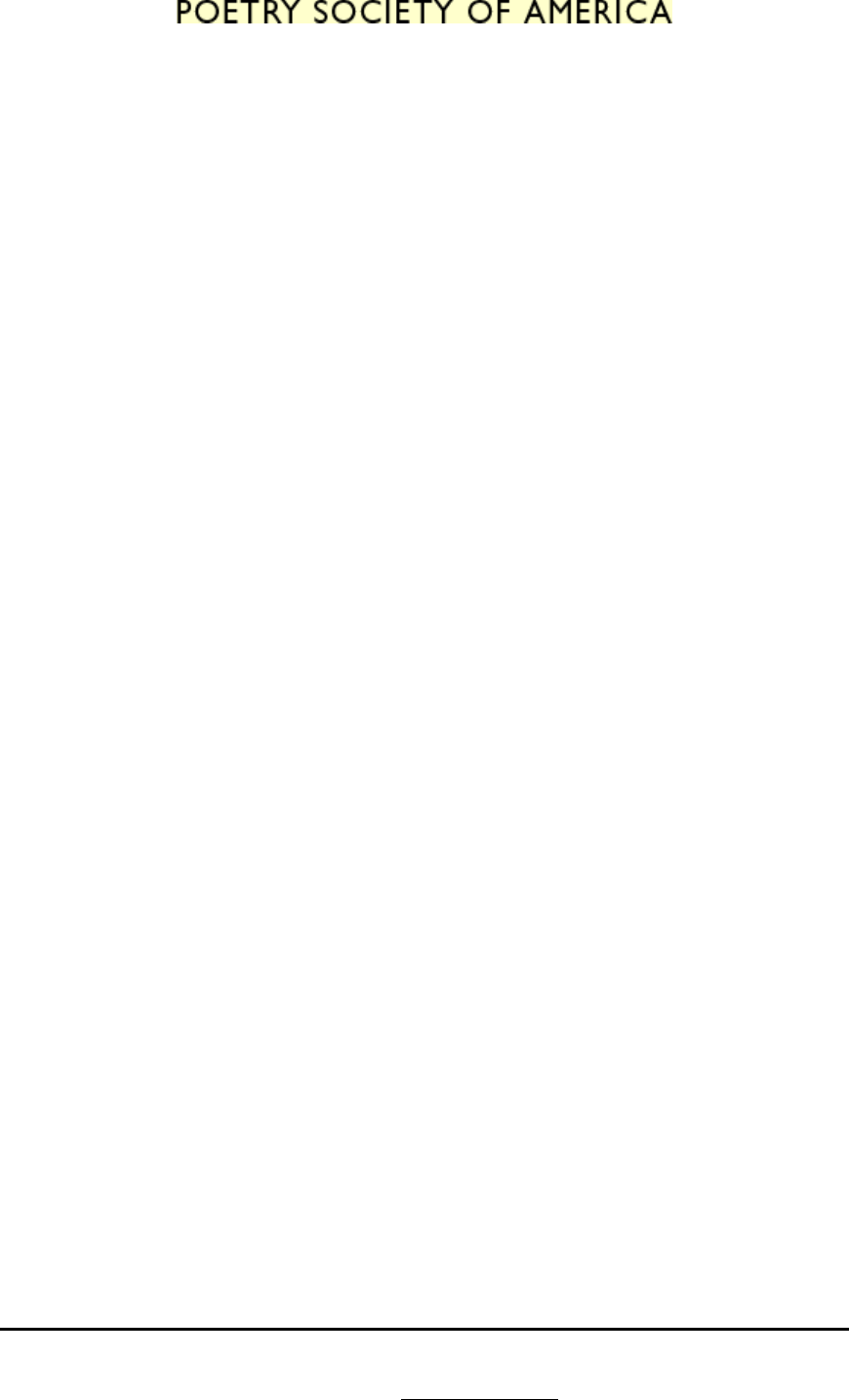
15 Gramercy Park
New York, NY 10003
(212) 254-9628 / www.poetrysociety.org
from Crossing Brooklyn Ferry
FLOOD-TIDE below me! I watch you face to face!
Clouds of the west—sun there half an hour high—I see you also face to face.
Crowds of men and women attired in the usual costumes, how curious you are to
me!
On the ferry boats, the hundreds and hundreds that cross, returning home, are
more curious to me
than you suppose,
And you that shall cross from shore to shore years hence are more to me, and
more in my
meditations, than you might suppose.
Walt Whitman (1819-1892)

15 Gramercy Park
New York, NY 10003
(212) 254-9628 / www.poetrysociety.org
To My Dear and Loving Husband
If ever two were one, then surely we.
If ever man were loved by wife, then thee;
If ever wife was happy in a man,
Compare with me ye women if you can.
I prize thy love more than whole mines of gold,
Or all the riches that the East doth hold.
My love is such that rivers cannot quench,
Nor ought but love from thee give recompense.
Thy love is such I can no way repay;
The heavens reward thee manifold, I pray.
Then while we live, in love let's so persever,
That when we live no more we may live ever.
Anne Bradstreet (1612-1672)
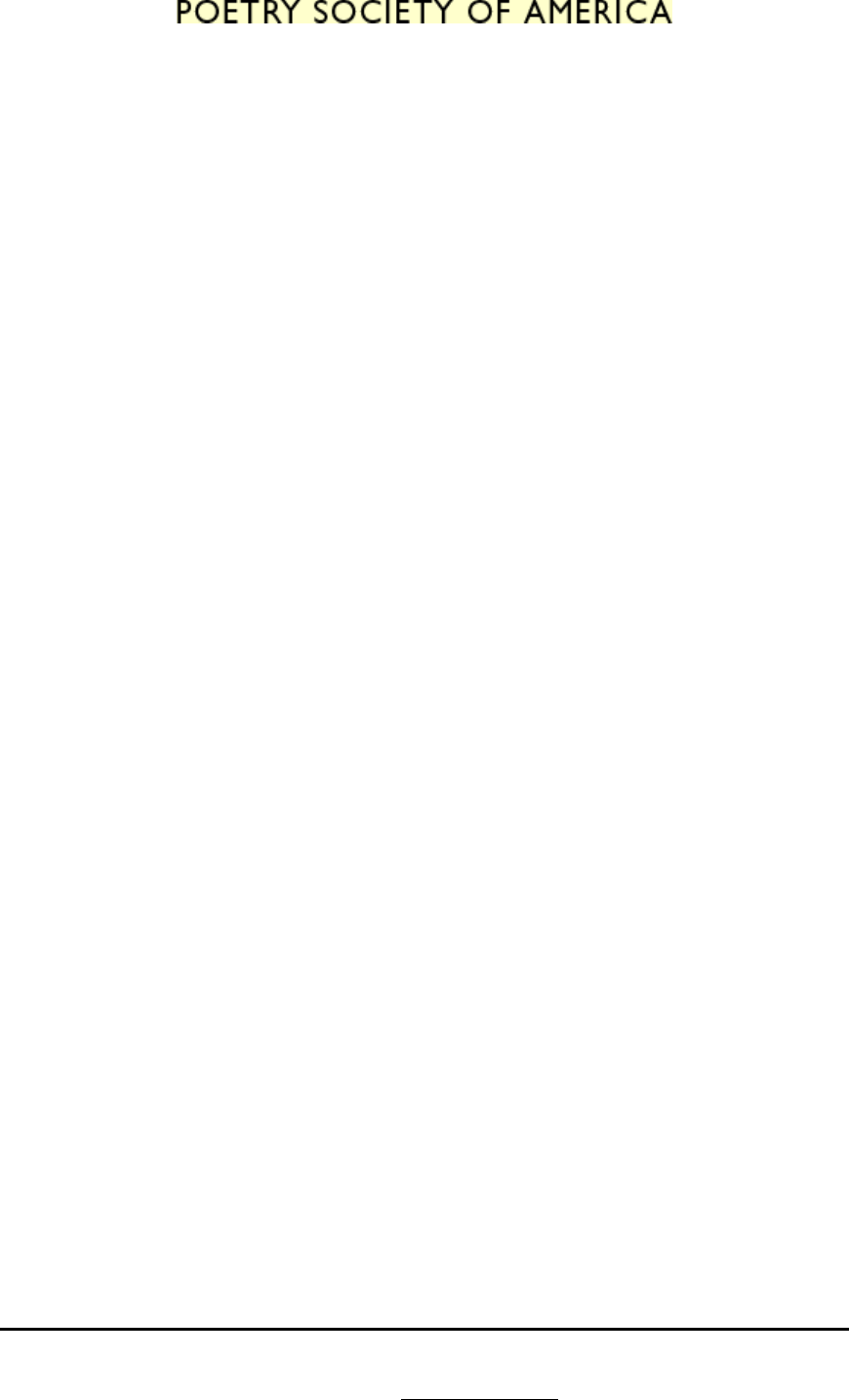
15 Gramercy Park
New York, NY 10003
(212) 254-9628 / www.poetrysociety.org
When I have Fears that I may Cease to Be
When I have fears that I may cease to be
Before my pen has gleaned my teeming brain,
Before high-piled books, in charactery,
Hold like rich garners the full ripened grain;
When I behold, upon the night's starred face,
Huge cloudy symbols of a high romance,
And think that I may never live to trace
Their shadows, with the magic hand of chance;
And when I feel, fair creature of an hour,
That I shall never look upon thee more,
Never have relish in the faery power
Of unreflecting love;—then on the shore
Of the wide world I stand alone, and think
Till love and fame to nothingness do sink.
John Keats (1795-1821)
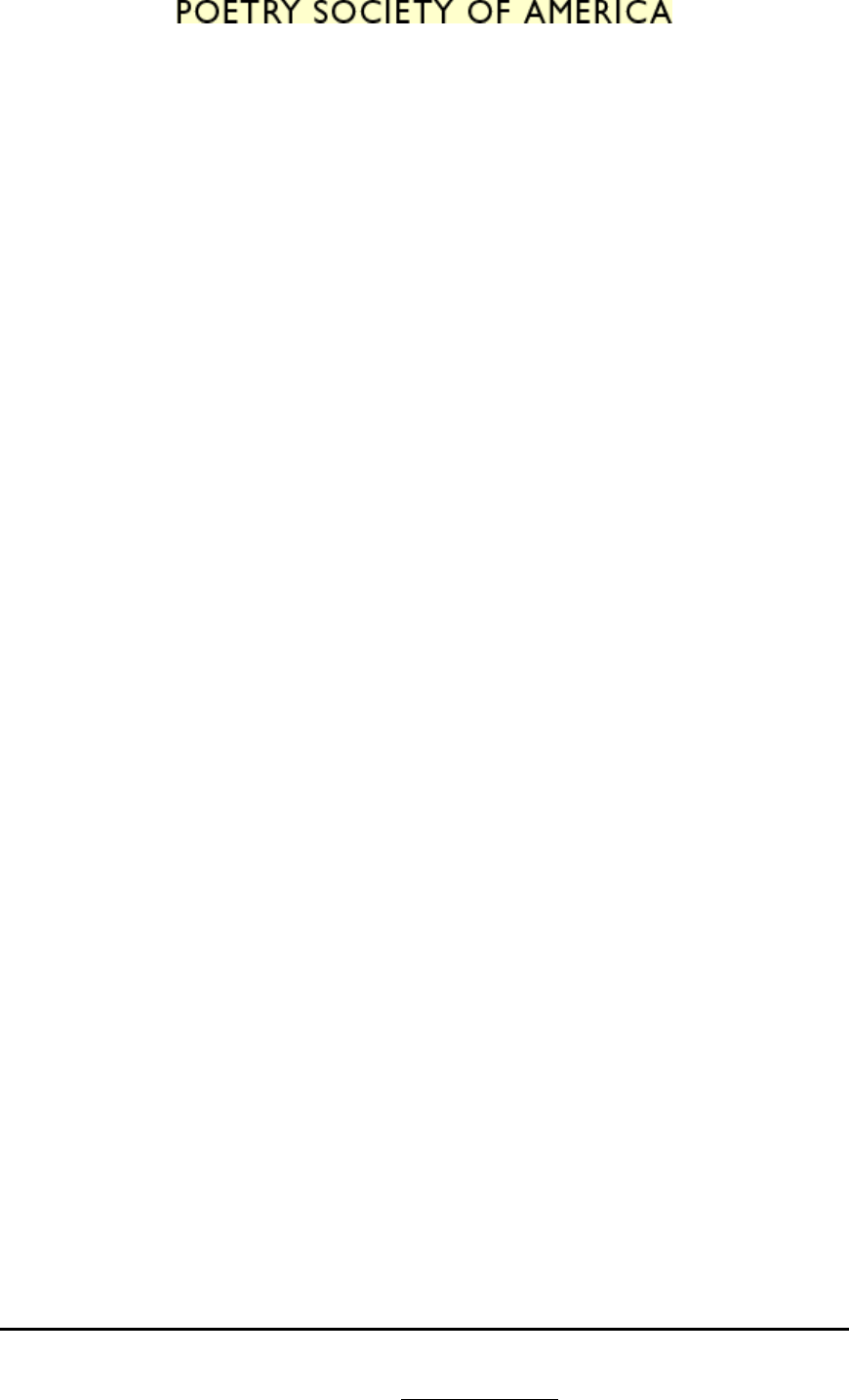
15 Gramercy Park
New York, NY 10003
(212) 254-9628 / www.poetrysociety.org
Song: To Celia
Drink to me, only with thine eyes,
And I will pledge with mine;
Or leave a kiss but in the cup,
And I'll not look for wine.
The thirst, that from the soul doth rise,
Doth ask a drink divine:
But might I of Jove's nectar sup,
I would not change for thine.
I sent thee late a rosy wreath,
Not so much honoring thee,
As giving it a hope, that there
It could not withered be.
But thou, thereon didst only breathe,
And sent'st it back to me;
Since when it grows, and smells, I swear,
Not of itself, but thee.
Ben Jonson (1572-1637)
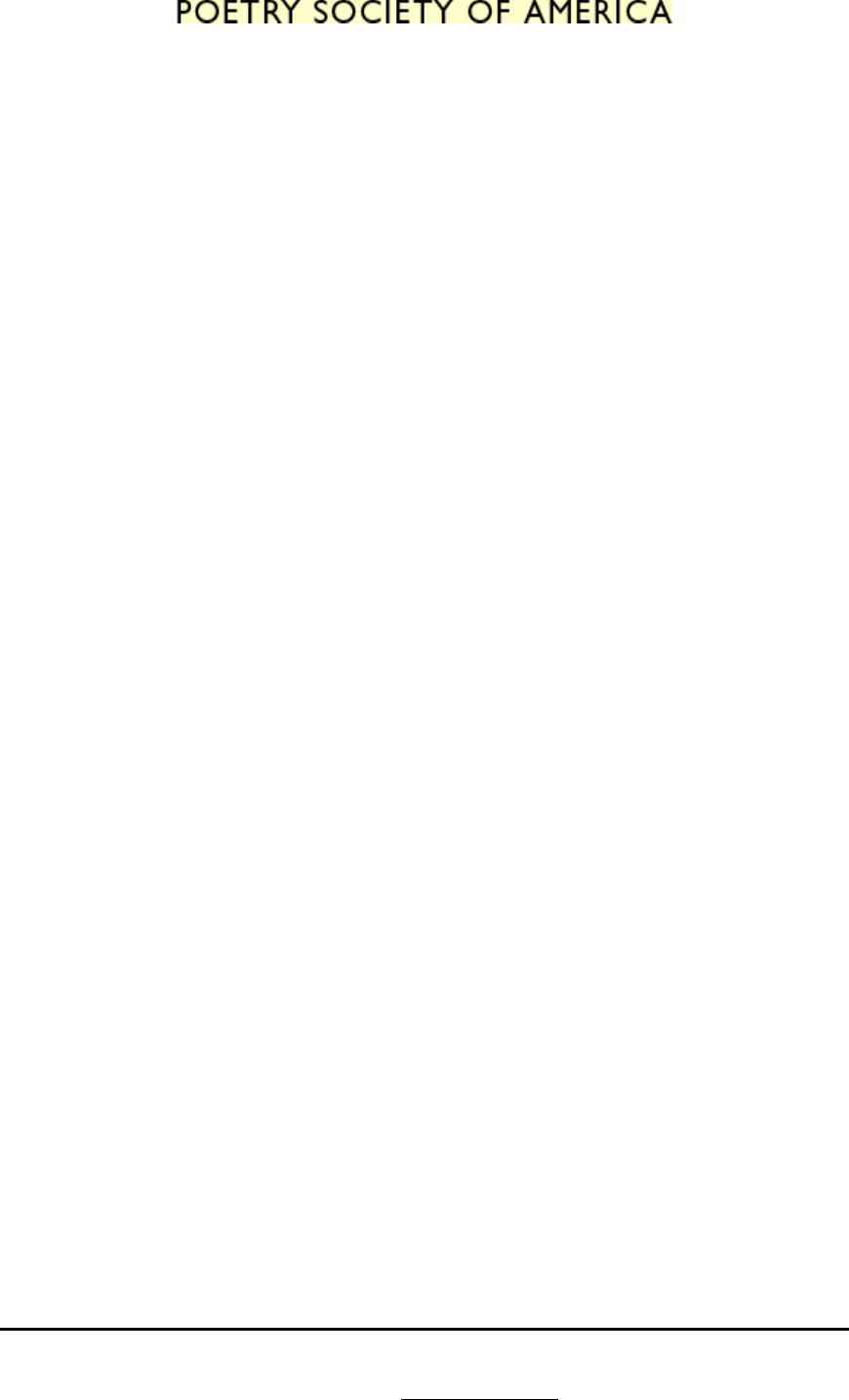
15 Gramercy Park
New York, NY 10003
(212) 254-9628 / www.poetrysociety.org
Love III
Love bade me welcome, yet my soul drew back,
Guilty of dust and sin.
But quick-eyed Love, observing me grow slack
From my first entrance in,
Drew nearer to me, sweetly questioning
If I lacked any thing.
“A guest,” I answered, “worthy to be here”:
Love said, “You shall be he.”
“I, the unkind, the ungrateful? ah my dear,
I cannot look on thee.”
Love took my hand and smiling did reply,
“Who made the eyes but I?”
“Truth, Lord, but I have marred them; let my shame
Go where it doth deserve.”
“And know you not,” says Love, “who bore the blame?”
“My dear, then I will serve.”
“You must sit down,” says Love, “and taste my meat.”
So I did sit and eat.
George Herbert (1593-1633)
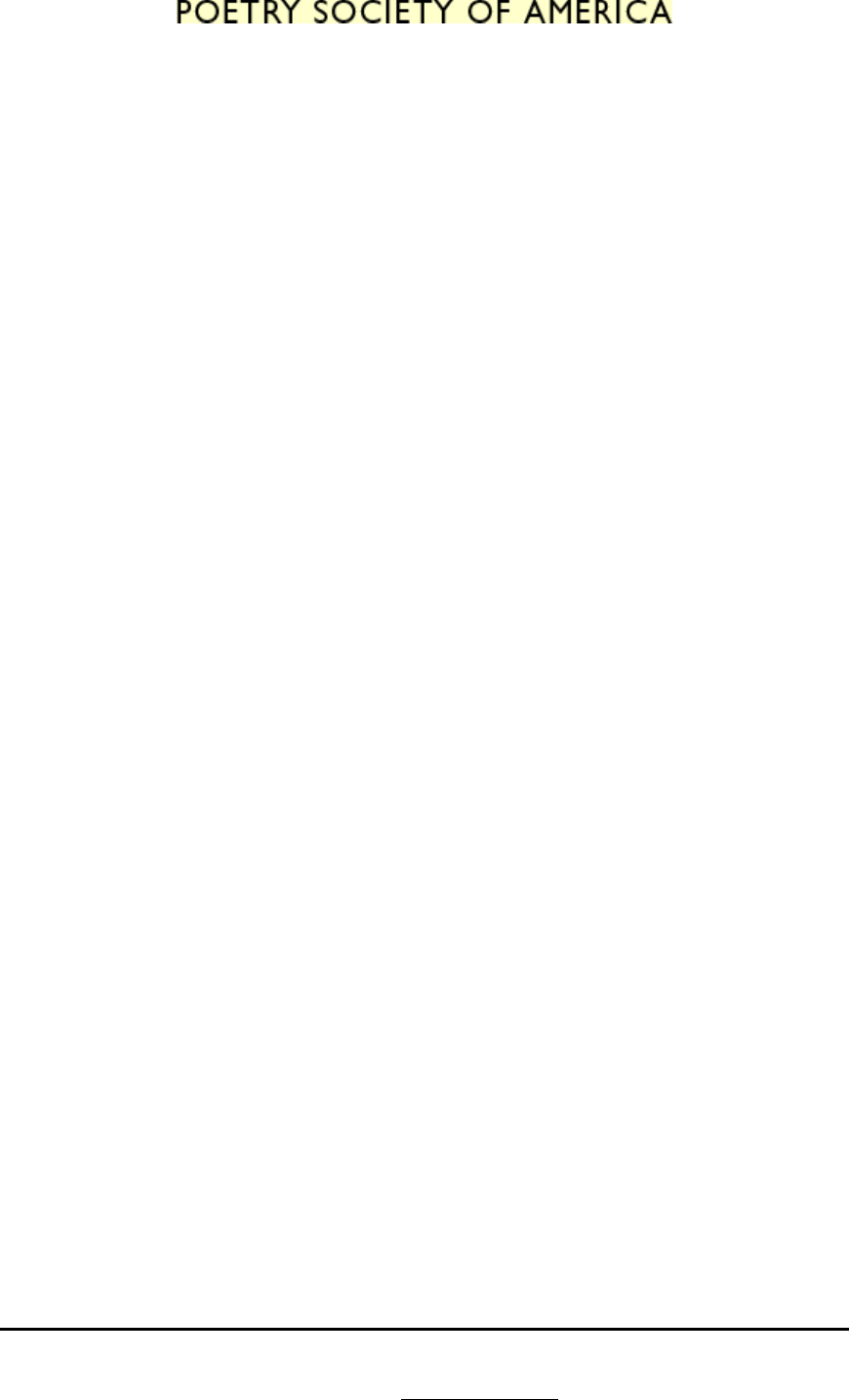
15 Gramercy Park
New York, NY 10003
(212) 254-9628 / www.poetrysociety.org
Jabberwocky
`Twas brillig, and the slithy toves
Did gyre and gimble in the wabe:
All mimsy were the borogoves,
And the mome raths outgrabe.
"Beware the Jabberwock, my son!
The jaws that bite, the claws that catch!
Beware the Jubjub bird, and shun
The frumious Bandersnatch!"
He took his vorpal sword in hand:
Long time the manxome foe he sought—
So rested he by the Tumtum tree,
And stood awhile in thought.
And, as in uffish thought he stood,
The Jabberwock, with eyes of flame,
Came whiffling through the tulgey wood,
And burbled as it came!
One, two! One, two! And through and through
The vorpal blade went snicker-snack!
He left it dead, and with its head
He went galumphing back.
"And, has thou slain the Jabberwock?
Come to my arms, my beamish boy!
O frabjous day! Callooh! Callay!'
He chortled in his joy.
`Twas brillig, and the slithy toves
Did gyre and gimble in the wabe;
All mimsy were the borogoves,
And the mome raths outgrabe.
Lewis Carroll (1832-1898)
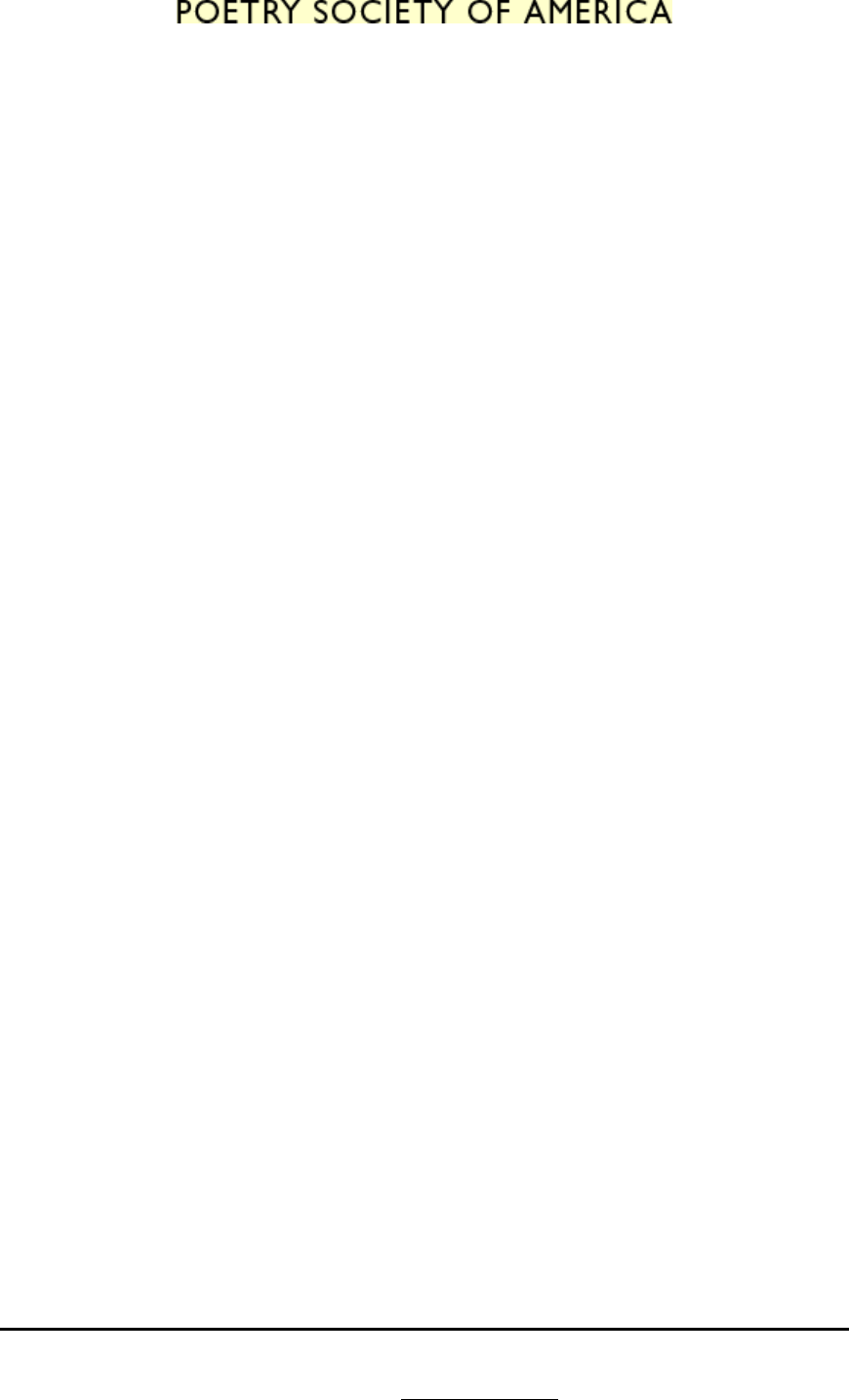
15 Gramercy Park
New York, NY 10003
(212) 254-9628 / www.poetrysociety.org
There was an Old Man With a Beard
There was an Old Man with a beard,
Who said, “It is just as I feared!—
Two Owls and a Hen,
Four Larks and a Wren,
Have all built their nests in my beard!”
Edward Lear (1812-1888)
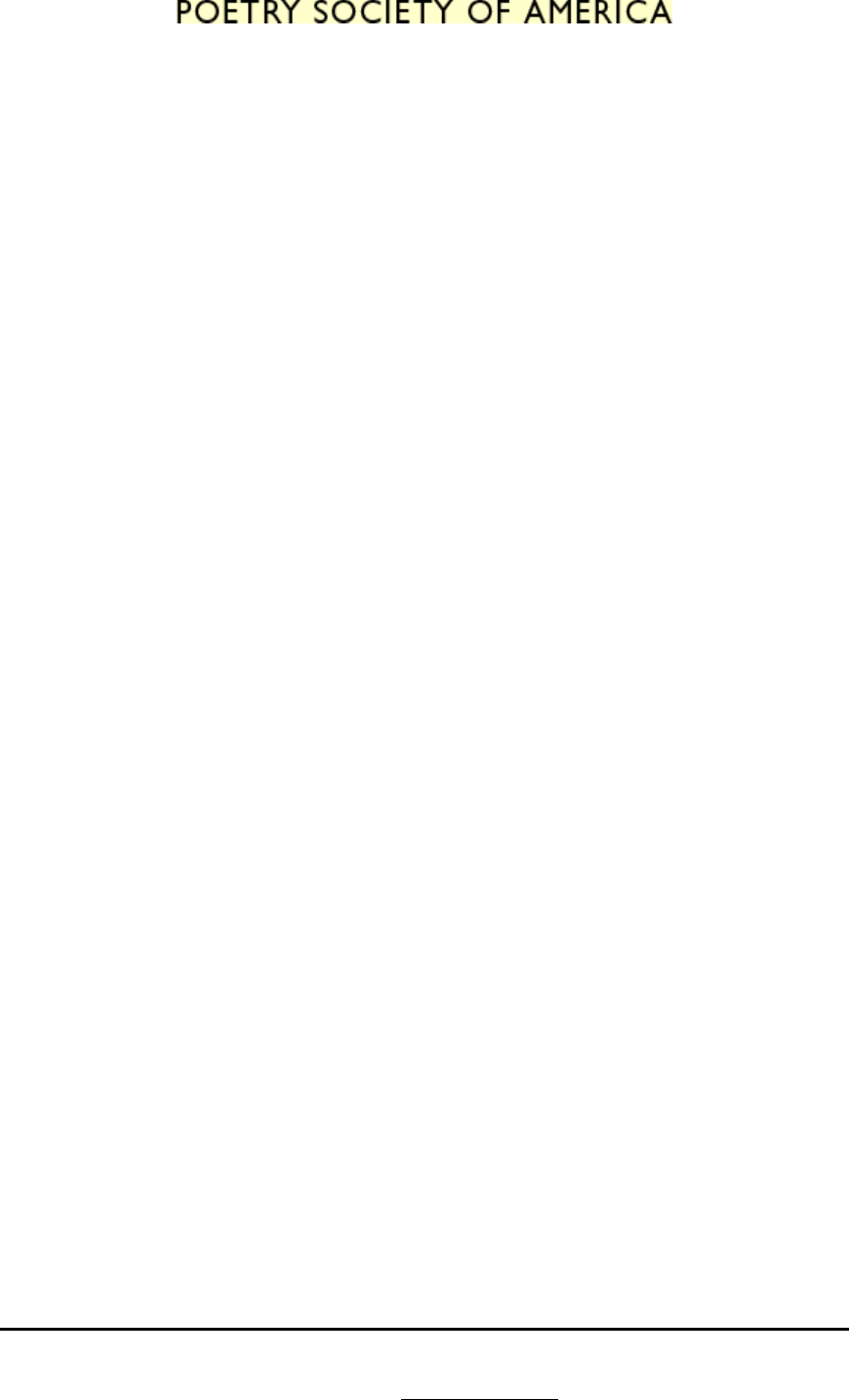
15 Gramercy Park
New York, NY 10003
(212) 254-9628 / www.poetrysociety.org
A Birthday
My heart is like a singing bird
Whose nest is in a watered shoot;
My heart is like an apple-tree
Whose boughs are bent with thick-set fruit;
My heart is like a rainbow shell
That paddles in a halcyon sea;
My heart is gladder than all these,
Because my love is come to me.
Raise me a daïs of silk and down;
Hang it with vair and purple dyes;
Carve it in doves and pomegranates,
And peacocks with a hundred eyes;
Work it in gold and silver grapes,
In leaves and silver fleurs-de-lys;
Because the birthday of my life
Is come, my love is come to me.
Christina Rossetti (1830-1894)
